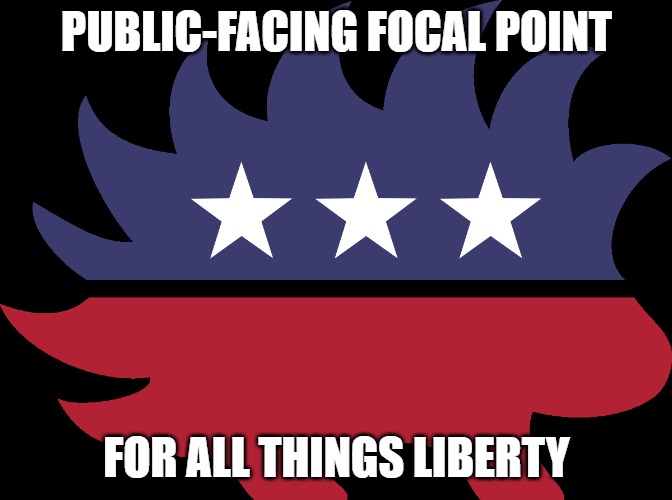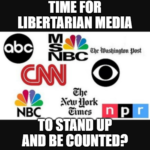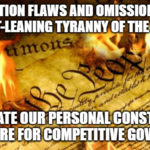Big “L” or little “l”?
Continuation of a dialog with Bill Orton in the Vonluntaryism group about big “L”-little “l” labeling, with considerable edits for clarity:
Bill Orton : Bill, I think big “L”/little “l” pigeon-hole labeling is a waste of time. From my perspective, the LP is by far the best public-facing focal point for all things Liberty. I will honor the LP as such. The LP in the last 6 years locally and 3 years nationally has brought me into contact with a fantastic Liberty network, including you. That fact alone is more than sufficient justification to celebrate the LP.
I wish the LP would get their heads out of political smoke-filled back rooms, pay more attention to the private sector, and win more elections by leveraging free-market benefits like cash-basis healthcare and other coming cash-basis disruptions of government social service monopolies. But that is a task for the private sector, not the public sector. The LP and Libertarian movement are not the only gateways to the Liberty arena, but who can deny the doors they have opened and flaunted in the face of the donkeyphant duopoly? Oops, please excuse my label filter hiccup! 🙂
Does that observation on the value of the LP affect my personal philosophy? Not one iota. Ideas stand or fall on their own rational objective merit. Have I gotten ideas from my exposure to the LP? You betcha – a ton! The broader Libertarian movement may or may not be more in sync with my views than the LP but that comparison is totally irrelevant when seeking the truth as best we humans can understand metaphysical reality.
I could care less about labeling. I am neither alt-left nor alt-right. You might say I am alt-freedom. However, regardless of labels, the goal for me is pure and simple – freedom, nothing more, nothing less, for all people. I have zero tolerance for political correctness and no use for associated labels that fly in the face of Man’s rational capacity. I believe that free-market anarcho-[laissez-faire]capitalism and voluntary competitive Panarchy governance will best survive the test of time and allow mankind to thrive. That is my personal view irrespective of my celebration of the LP as a great source of ideas and melting-pot cauldron of freedom seekers.
Paraphrasing Shakespeare’s Macbeth, “Out damned label!”
Follow-up response to Robert Eckerson:
David Pratt Demarest Robert, I agree. It’s not rocket science. It’s amazing how well free markets operate and how well we manage most of our personal lives and relationships despite unwanted, unnecessary, and misguided at best big brother guidance from the government.
Let’s stop kidding ourselves.There nothing, nothing, that governments can do for us that we can’t do better ourselves. Let me be more blunt. Governments have always existed solely for the benefit of those who govern. Those who think otherwise are either using government to get an unfair free-lunch advantage or are deluding themselves and need to have their heads examined.
Government, get the hell out of our way!
Thoughts?
Poor Pratt’s Almanack – Pratt’s Prattles
D. Pratt Tseramed, November 1, 2018















